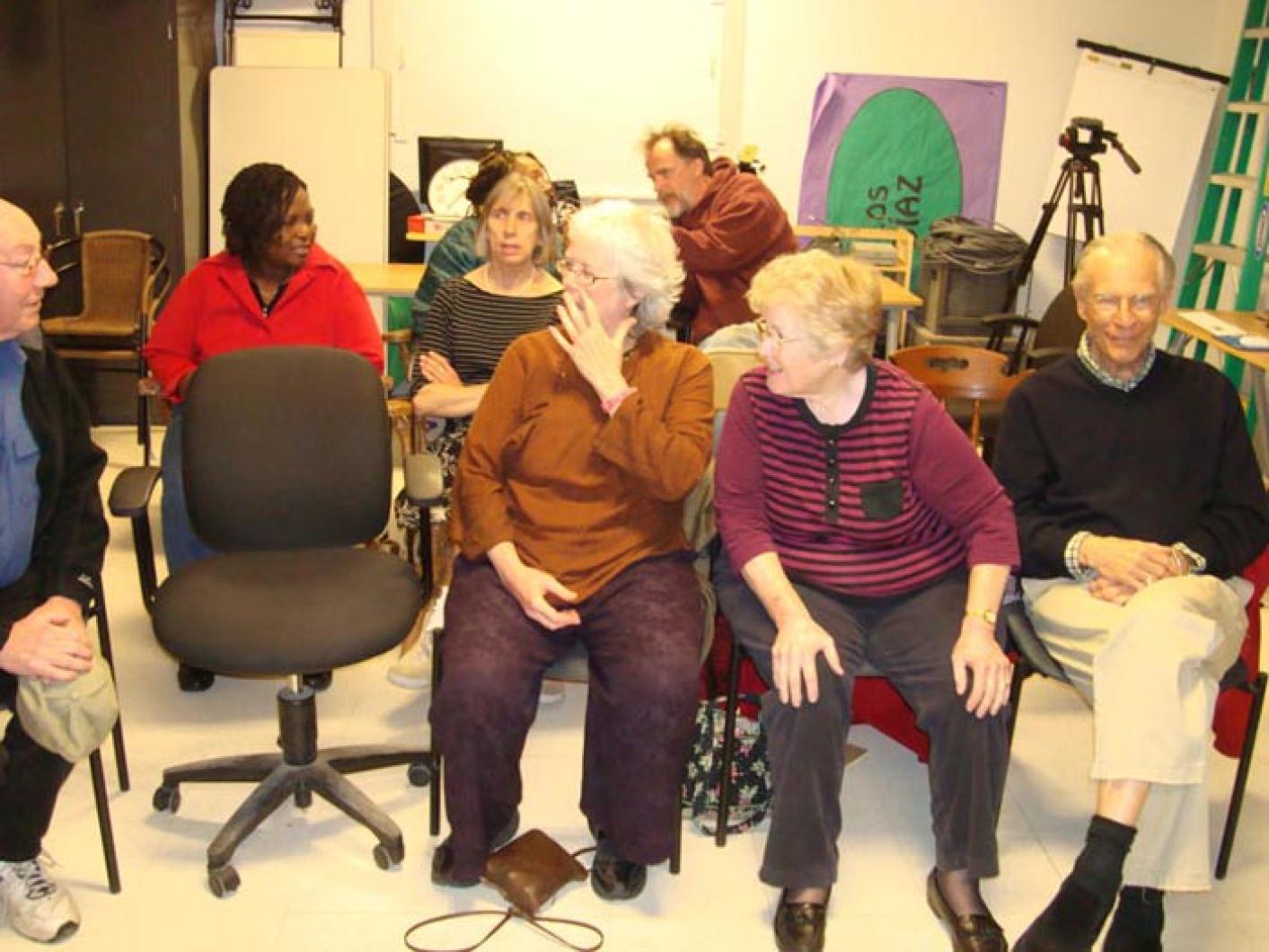You might not know that the unassuming, one-story, little building that sits next to the regional high school houses greatness. But it does. Eight women discovered this recently by enrolling in the Telling Your Story Digital Workshop through Adult and Community Education of Martha’s Vineyard (ACEMV).
One by one we trickled in, taking our seats in the classroom at Martha’s Vineyard Community Television (MVTV), which sponsored, hosted and taught the class. MVTV executive director Julienne Turner and access coordinator Michelle Vivian led the introductions — both of ourselves and of the class concept, which was to tell a personal story using a recorded narration during which our photos would be displayed.
Many of us were new to the medium and the technology, but the workshop leaders allayed any fears we might have had by breaking down the process into simple steps and reminding us that each of us had a story to tell. After discussing our ideas and watching some examples, we were given a brief writing exercise to get our storytelling juices flowing and tap into the narrative aspect of each piece. Reading these aloud revealed the inherent power of sharing stories; already we began to feel connected to each other as well as to a part of our past. We left class with an assignment to zero-in on a story idea, select photographs and write the narration. Yikes!
The next few weeks allowed us to record our voice-overs, scan old hard-copy photos, choose music from MVTV’s copyright-free library, and plug it all in to the Photo to Movie software. Although we were working independently, under the kind, careful guidance of Ms. Turner and Ms. Vivian, a subtle and understated bonding occurred. We were all in this together, after all. This painstaking process showed us — sometimes through frustration — how much time can be involved in producing a three-to-seven-minute piece. As this realization became truer each week, MVTV was generous enough to extend the class beyond the five-week curriculum, allowing us more studio time to complete the projects that had become so near and dear to our hearts. We could even check out the state-of-the-art MacBook Pro laptops overnight to work from home. More time was clearly needed, so our premiere party, at which all the stories would be shown to our class and invited guests, was postponed for nearly a month. Good news for some of us indeed!
The big night finally arrived, complete with both anticipation and party food. I had been up the night before (or morning, if you want to get technical) tweaking the final details of my story, but I was doubly wired with butterflies and a caffeine buzz. Introductions were made, lights were dimmed and sighs were breathed. Each story proved to be wonderful and unique, reflecting the style, heart and vulnerability of its storyteller. Some were lighter fare, such as a beautiful European family vacation or one family’s penchant for the costume box, while others honored the lives of loved ones who have died. Some highlighted a living family member, and one answered the question, “Who do you think you are somebody?” with great humor and dry wit. As the audience, we laughed, cried and marveled at the stunning work of our classmates — and ourselves.
We left with new skills and inspiration, having experienced the fun, or catharsis, of sharing a personal story in this medium.
Janet Holladay commented that the timing of the course was perfect for her, as she had recently lost her mother and saw this as a form of expression for that experience. “The voice over, photos and musical score allow an in-depth way of looking at something with a lot of different angles. I was hoping serendipity would do its part and mix all the elements into the soup so it wasn’t completely under my control,” she added.
“Most of us weren’t very tech-savvy going in, but gained new skills that can be used at home, too, such as scanning photos,” Julie Hitchings said.
ACEMV director Lynn Ditchfield participated in the class and was glad to reconnect with a medium that is so powerful. “Stories that are from the inside out always speak to me. If it’s authentic, you take it in,” she said. “Each one of these stories spoke to me in one way or another.”
Ms. Ditchfield was very pleased for ACE to collaborate with MVTV in offering this class: “It’s important to us to collaborate with organizations that have a similar mission.”
Many of the participants noted that the gentle instruction and accommodating guidance offered by Ms. Turner and Ms. Vivian were essential in mastering the technological requirements for completing their projects. Some were previously unaware of MVTV as a community resource, and were happy to have made such a discovery they can use on an ongoing basis.
“We’re in the business of demystifying television and digital literacy,” Ms. Turner said. “We want to help people grow more confident with technology so they can express themselves by writing, documenting and editing their stories.”
“Some came in with no computer background, and this helped them feel more empowered,” Ms. Vivian added.
Our stories each had an impact on the others, as Ms. Turner hoped they would. “You can—and should—tell your story,” she said.
“It makes us a better community.”





Comments (1)
Comments
Comment policy »